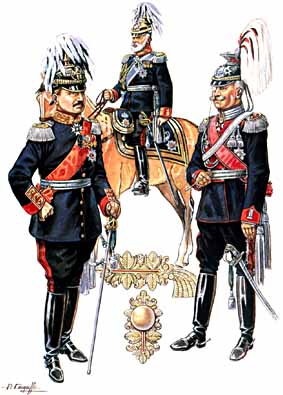For Allies,Total Victory is Necessary;
For Germany It’s World Domination.
Special to The Great War Project
(19, 20, 21 January) Significant developments these days a century ago in several theaters of the war.
On January 20th,1914, according to historian Martin Gilbert, “the Germans launched their first bombing raid on Britain, when two Zeppelins crossed the North Sea” to the British coast at Norfolk. Four civilians are killed, reports Gilbert.
At the same time, a significant battle erupts at the French town of Soissons. The Germans take 5,000 French soldiers prisoner.
Fighting also continues at Ypres “making Ypres itself virtually uninhabitable.” And Messines, south of Ypres, remains occupied by the Germans, one of whom is Corporal Adolf Hitler. He writes on January 20th: “The weather is miserable, and we often spend days on end knee-deep in water, and what is more, under heavy fire.”
The British leadership continues planning for a naval – strictly naval – assault on the straits in western Turkey, known as the Dardanelles. Such a move by the British is prompted by a frantic request from St. Petersburg to alleviate the Turkish pressure on the Russians in their fight in the freezing, snowbound Caucasus.
The Russians want the British to send troops. The British do not…
…they are reluctant to move any of their troops from the stalemate on the Western Front. Writes war historian John Keegan, the Caucasus is too far away from British concentrations of troops.
“The British government was as yet unwilling to divert troops from France though it was prepared to consider deploying naval forces, as long as long as its preponderance in the North Sea was not diminished if a promising use for them could be found.”
Winston Churchill, the British First Lord of the Admiralty, is the force behind this plan. He and other British leaders favor this plan as a means of “opening a way to Russia’s Black Sea ports,” writes Keegan. This plan should be strictly naval. There is no willingness of the part of Britain to weaken its commitment to the French on the Western Front.
More broadly, writes historian Max Hastings, “Britain and France committed themselves to the destruction of ‘Prussian militarism’ which meant ensuring that post-war Germany would lack the industrial and military means to start another war.”
Anything short of this outcome, reason the Allies, will mean that Germany can retain the capability to wage another war. “In order to be able to dictate appropriate terms to Berlin,” Hastings writes…
…“total victory was necessary, followed by punitive economic measures.”
Hastings writes that this also implies the Allies are seeking economic dominance in the post-war world.
Specifically, the French leadership is eying more territory in Germany beyond the return of the provinces of Alsace and Lorraine.
And secretly France and Britain have already promised Constantinople and the Dardanelles to the Russians, who seek to bring it and other Turkish territory and waterways into the Russian orbit.
Thus the Germans see the struggle now as an existential one. The Germans view defeat as “a debasement of their nation.” According to Hastings, Germany did not seek world domination at the start of the war, but “the fact of the war caused their leaders both to recognize the dire consequences of defeat. And to frame increasingly ambitious schemes to be implemented in the event of victory.”


